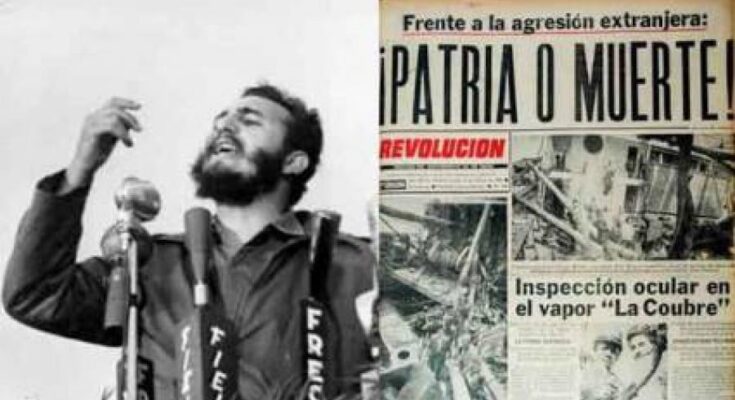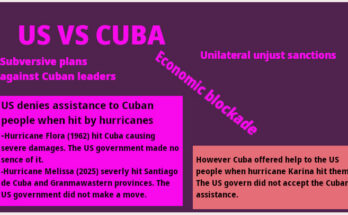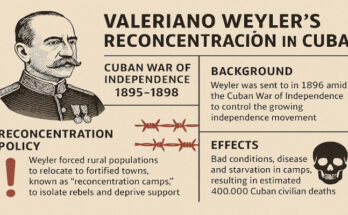Often, war cries arise in the midst of anguish and despair. Peace, although pleasant, is not capable of inspiring the fervor that emanates from deep sorrow. Fidel knew it well on that March 5, 1960, when he pronounced a slogan that would be for the Cuba of any time: Fatherland or Death!
It was a time of mourning for the largest of the Antilles, because the explosion of the recently arrived French ship La Coubre had claimed hundreds of victims. The tense political situation of the country in those days, together with the analysis of experts, showed the enemy’s hand in such atrocious event.
The funeral honors of the deceased also became a tribune of the people, and it was there where the historic leader of the Revolution made known the only options Cuba had in the face of the aggression of its adversaries, to safeguard the Homeland or die in the attempt. Homeland or Death was, therefore, a war cry, a cry of resistance.
But that war would not be fought only with firearms, but with weapons of thought. Today it is already 65 years since that stormy day in the streets of Havana, but the enemy’s hand is still visible in many La Coubre, which are not necessarily ships.
For that reason, in every meeting of the people, in every remembrance of the glorious past, in every moment in which there is talk of struggle, the same dilemma of another time is heard: Homeland or Death!
It is a cry born of pain for the innocent lives that were lost, for the uncertainty of the days that followed, for the tears of those who were there. To say “Homeland or Death”, more than a custom, is a commitment, a way of putting oneself under the same dilemma: to win or to give one’s life.
Often, the cries of war remain in the memory of the people forever. Fidel knew it well when he said “Fatherland or Death!




